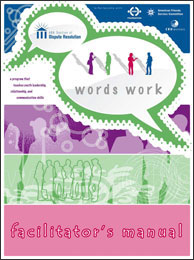Peace One Day, in Association With Scholastic, and Underwritten by Ben & Jerry’s, Offers Free Multi-Media Online Curriculum to U.S. Middle and High Schools to Inspire Students to Be Global Citizens
Educational Program Features 21 Lesson Plans, DVD, and Live Webcast Designed to Motivate Teen Participation in Peace Day on September 21st, 2010, a Day Adopted by All UN Members and Recognized by the US Senate
Filmmaker and founder of the UK-based nonprofit Peace One Day (POD), Jeremy Gilley, today announced the distribution of a free online educational curriculum and film to schools teaching grades 6-12 in 11 US states. The program includes 21 lesson plans helping teachers and students to explore such issues as conflict resolution and nonviolence, using Peace Day, September 21 as a focus. Additionally, all grades 6-12 classrooms are invited to participate in a special LIVE webcast held in New York City on March 19, 2010, at 1 p.m. EDT to inspire students to make a difference in their school, community and in the world. Jude Law, Ambassador of Peace One Day, will be joining Jeremy and special guests live on the day via Skype. The online curriculum is available at www.peaceoneday.org.
In 2001, September 21 was unanimously adopted by UN member states as an annual day of global ceasefire and nonviolence. In September 2009, the US Senate unanimously passed a resolution which recognizes September 21 as a global day of peace.
The Peace One Day curriculum fosters discussion and projects among young people about peace and nonviolence in their schools, local communities, and the world at large. The online curriculum is designed to be used in conjunction with Gilley’s award-winning documentary film The Day After Peace, a compelling documentary charting one man’s journey to establish September 21 as Peace Day. Thirty thousand free copies of the film will be delivered to middle schools and high schools this month. Peace One Day’s educational curriculum and DVD are being distributed in association with Scholastic, the global children’s publishing, education and media company, and underwritten by long-term supporter Ben & Jerry’s.

